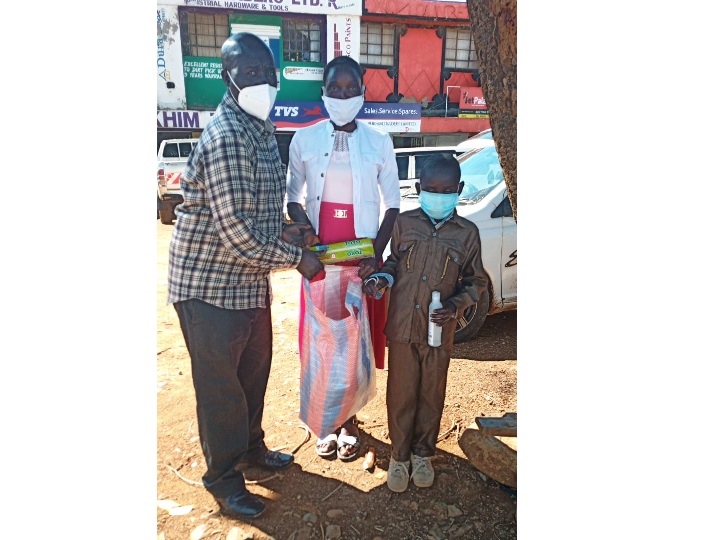Due to the coronavirus pandemic, the schools have been closed nationwide and all pupils need to stay at home. Mike Ng’eno from Salus Oculi Kenya keeps in touch with the teaching staff of blind and partially sighted children. In this way, we learn how the children are doing. Our projects are to find in rural areas. As many children have to walk a long way to school, they live in boarding schools. However, they had to leave for an indefinite period of time in March and go back to their villages. Many families are already living in poverty. The coronavirus pandemic has made their situation even worse: No occasional jobs any more, trade and commerce take place with restrictions or not at all. Parents do not know how to support their families. Under these circumstances, distance learning is not possible: Not only do they not have a computer or tablet at home but also there is still no access to electricity. So the children do the household chores, agricultural works or take care of animals, if necessary. Children with disabilities are mostly not able to perform one of the aforementioned activities. Consequently, there are only a few or even no job opportunities for them which result in financial problems their relatives cannot overcome. In some places the tense situation increases the cases of domestic violence. Girls are the main victims of violence, especially those with disabilities – a devastating situation.
In this situation, the teaching staff starts visiting their blind or partially sighted pupils in the villages. They talk to the parents, take a close look at the situation, ask them about problems they are facing and give advices.
We learn about different cases: Emily Kiruiin, cook from Kapkesosio, who hosts a blind girl because her mother cannot pick up her daughter. The teacher Jane Chesire from Mlimani who visits blind pupils at home in order to give them teaching materials such as braille books. Ben Simiyu, lead teacher of the Unit in Mitoto, visits his pupils in order to find out with their families where the blind child can participate in activities of daily living. He says that the need of information regarding Covid-19 is very high. When he informs the families about appropriate protective and hygiene measures, the neighbours listen to him as well. We were told other examples of self-organised commitments from Chepsigot, Kapsowar and Baragoi.
By means of the question concerning the need of support by Ananse, we found out how many families need financial support for journeys, groceries and hygiene products that can be taken to their families.
Our member group See Africa pays school fees for blind partially sighted pupils. See Africa pays the teacher’s journeys to the pupils, groceries and hygiene products in a total amount of €2,500 between October and December. Some schools have been open since January 2021. In agreement with See Africa and Salus Oculi Kenya (SOK) we have made the decision that SOK decides on an individual basis whether the financial support is to be spent for school fees or for home visits this year.
